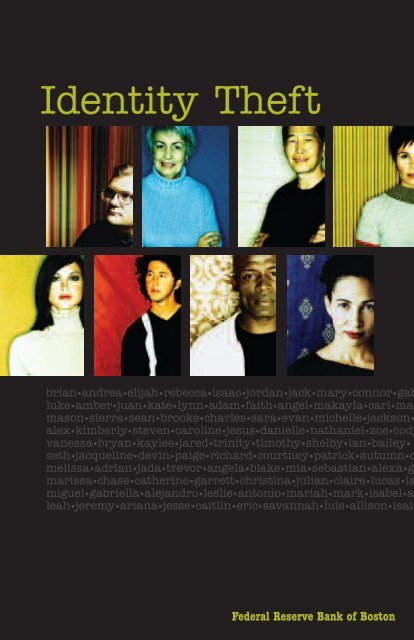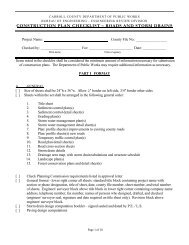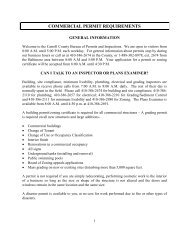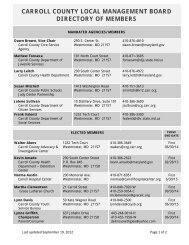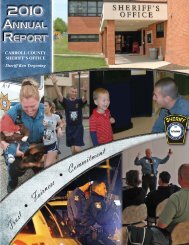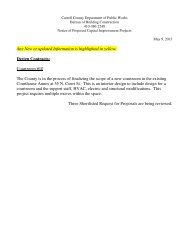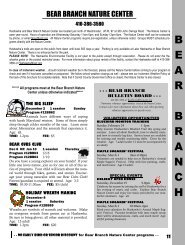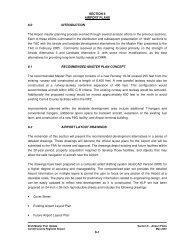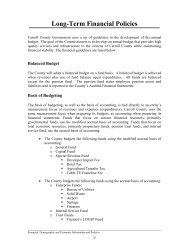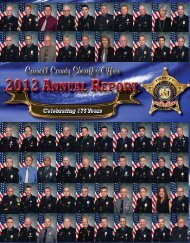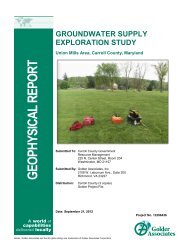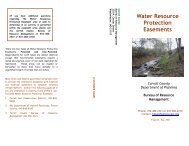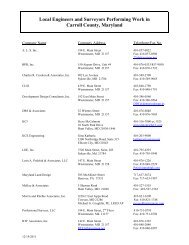Identity Theft - The Federal Reserve Bank of Boston
Identity Theft - The Federal Reserve Bank of Boston
Identity Theft - The Federal Reserve Bank of Boston
You also want an ePaper? Increase the reach of your titles
YUMPU automatically turns print PDFs into web optimized ePapers that Google loves.
<strong>Identity</strong> <strong><strong>The</strong>ft</strong><br />
brian•andrea•elijah•rebecca•isaac•jordan•jack•mary•connor•gab<br />
luke•amber•juan•kate•lynn•adam•faith•angel•makayla•carl•mad<br />
mason•sierra•sean•brooke•charles•sara•evan•michelle•jackson•<br />
alex•kimberly•steven•caroline•jesus•danielle•nathaniel•zoe•cody<br />
vanessa•bryan•kaylee•jared•trinity•timothy•shelby•ian•bailey•<br />
seth•jacqueline•devin•paige•richard•courtney•patrick•autumn•c<br />
melissa•adrian•jada•trevor•angela•blake•mia•sebastian•alexa•g<br />
marissa•chase•catherine•garrett•christina•julian•claire•lucas•la<br />
miguel•gabriella•alejandro•leslie•antonio•mariah•mark•isabel•a<br />
leah•jeremy•ariana•jesse•caitlin•eric•savannah•luis•allison•isaia<br />
<strong>Federal</strong> <strong>Reserve</strong> <strong>Bank</strong> <strong>of</strong> <strong>Boston</strong>
<strong>Identity</strong><br />
<strong><strong>The</strong>ft</strong><br />
You’ve probably heard about it in the news.<br />
It may even have happened to someone you know.<br />
<strong>The</strong> FBI calls identity theft one <strong>of</strong> the fastest growing<br />
crimes in the United States and estimates that<br />
500,000 to 700,000 Americans become identity<br />
theft victims each year.<br />
<strong>Identity</strong> theft is a federal crime. It occurs when one<br />
person’s identification (which can include name,<br />
social security number, or any account number)<br />
is used or transferred by another person<br />
for unlawful activities.
This booklet is designed<br />
to help you understand<br />
what identity theft is,<br />
how it happens,<br />
how to protect yourself,<br />
and what steps to take<br />
if your identity is stolen.
How<br />
<strong>Identity</strong><br />
<strong><strong>The</strong>ft</strong><br />
Can<br />
Affect<br />
You<br />
<strong>The</strong> consequences <strong>of</strong> identity theft<br />
can be staggering. Victims spend<br />
extensive time closing bad<br />
accounts, opening new ones, and<br />
fixing credit records. <strong>The</strong>re can be<br />
high out-<strong>of</strong>-pocket expenses related<br />
to clearing your name. You could<br />
be denied loans and jobs — and,<br />
though unlikely, you could even be<br />
mistakenly arrested as a result <strong>of</strong><br />
crimes committed in your name.
What <strong>Identity</strong> Thieves Do with Your Information<br />
<strong>Identity</strong> thieves frequently open new accounts in your name. <strong>The</strong>y <strong>of</strong>ten<br />
apply for new credit cards using your information, make charges, and<br />
leave the bills unpaid. It is also common for them to set up telephone<br />
or utility service in your name and not pay for it. Some victims have<br />
found that identity thieves applied for loans, apartments, and mortgages.<br />
Thieves have also been known to print counterfeit checks in a<br />
victim’s name.<br />
Thieves also <strong>of</strong>ten access your existing accounts. <strong>The</strong>y may take money<br />
from your bank accounts, make charges on your credit cards, and use<br />
your checks and credit to make down payments for cars, furniture, and<br />
other expensive items. <strong>The</strong>y may even file for government benefits<br />
including unemployment insurance and tax refunds.<br />
Unfortunately, thieves <strong>of</strong>ten use a stolen identity again and again. It is<br />
very common for victims to learn that thieves have opened and<br />
accessed numerous accounts, <strong>of</strong>ten over a long span <strong>of</strong> time.<br />
How <strong>Identity</strong> <strong><strong>The</strong>ft</strong> Happens<br />
Four out <strong>of</strong> five victims have no idea how an identity thief obtained their<br />
personal information. Among those who think they know what happened,<br />
many believe the identity theft occurred when their purse or wallet<br />
was stolen or lost. Thieves also steal identities from the trash — this<br />
is called “dumpster diving” — and it can occur at home, at work, or at a<br />
business. Mail can be stolen from your home mailbox, from a drop-box,<br />
at businesses, and even directly from postal workers. Home computers<br />
can be infected with viruses that transmit your data to thieves.<br />
Group identity theft has become a major problem for consumers. A thief<br />
gains access to a place that keeps records for many people. Targets<br />
have included stores, fitness centers, car dealers, schools, hospitals,<br />
and even credit bureaus. Thieves may either use the stolen identities<br />
themselves or sell them to other criminals.<br />
<strong>Identity</strong> <strong><strong>The</strong>ft</strong>
“Pretexting” is a method <strong>of</strong> identity theft that is on the rise. <strong>The</strong> identity<br />
thief poses as a legitimate representative <strong>of</strong> a survey firm, bank,<br />
Internet service provider, employer, landlord, or even a government<br />
agency. <strong>The</strong> thief contacts you through the mail, telephone, or e-mail,<br />
and attempts to get you to reveal your information, usually by asking<br />
you to “verify” some data.<br />
Victims <strong>of</strong> identity theft <strong>of</strong>ten find that<br />
Victims <strong>of</strong> identity<br />
someone they know has committed the<br />
theft <strong>of</strong>ten find that<br />
crime. Roommates, hired help, and land-<br />
someone they know has<br />
lords all have access to your home, and it is<br />
committed the crime.<br />
possible for them to access private information.<br />
<strong>Identity</strong> theft within families is also fairly common. This causes particular<br />
difficulties, because victims may be reluctant to notify the authorities<br />
or press charges. People are especially vulnerable when ending relationships<br />
with roommates and spouses.<br />
<strong>Identity</strong> theft <strong>of</strong>ten goes undectected. Within a month <strong>of</strong> being committed,<br />
half <strong>of</strong> the crimes still remain unnoticed. One in ten stays hidden for<br />
two or more years. <strong>Identity</strong> thieves may change “your” address on an<br />
account so that you won’t ever receive the bills with the fraudulent<br />
charges on them. <strong>The</strong>y will <strong>of</strong>ten pay the minimum balances on accounts<br />
they have opened, so as to avoid calling attention to the account and having<br />
it cut <strong>of</strong>f. <strong>The</strong>y may even use the identities <strong>of</strong> children or persons<br />
who are deceased, so that the crime is less likely to be noticed.
Four out <strong>of</strong> five victims<br />
have no idea how an<br />
identity thief obtained<br />
their information.
Steps<br />
to<br />
Prevent<br />
Fraud<br />
Think about taking care <strong>of</strong> your identity<br />
on a regular basis just like you take<br />
care <strong>of</strong> your health. Some activities<br />
you do every day, like brushing your<br />
teeth and taking vitamins. Other actions<br />
should be taken once or twice a year,<br />
like getting dental check-ups and an<br />
annual physical. On the following pages<br />
are some steps to follow to protect<br />
your identity.
Change Your Daily Routine<br />
At Home<br />
In the home, keep personal information safe, especially if you have<br />
roommates or are having any work done in your home. Don’t keep<br />
Personal Identification Numbers (PINs) near your checkbook, ATM<br />
card, or debit card.<br />
Shred any papers with confidential informa-<br />
Anything with an<br />
tion before you throw them out — even the<br />
account number on it<br />
junk mail. Anything with an account number<br />
can be used in identity<br />
can be used in identity theft. This includes<br />
theft.<br />
prescreened credit card <strong>of</strong>fers, receipts, canceled<br />
checks, bank statements, expired charge cards, doctors’ bills, and<br />
insurance documents.<br />
Since many identity thefts are traced to having a purse or wallet stolen,<br />
carry as few cards with identification and personal information as possible.<br />
Don’t take your social security number, and bring as few credit<br />
cards as you can. Think about putting different cards in different parts<br />
<strong>of</strong> your purse or knapsack.<br />
You should be wary <strong>of</strong> any mail, telephone, or Internet request for information<br />
— it could be “pretexting.” Unless you initiated the contact<br />
with a business, don’t give out any confidential information — such as<br />
your credit card number, social security number, PIN, birth date, or<br />
even your mother’s maiden name. Also be careful <strong>of</strong> unexpected<br />
e-mails that look as if they are from a legitimate company asking you<br />
to enter some information at a linked web site; sometimes phony web<br />
sites can look real. Make sure your family members also know not to<br />
give out any information to others.<br />
<strong>Identity</strong> <strong><strong>The</strong>ft</strong>
Check your banking and credit statements soon after you receive them<br />
and make sure there is no unexplained activity. Keep track <strong>of</strong> when in<br />
the month each <strong>of</strong> your bills usually arrives. If a bill does not arrive on<br />
time, call the company to make sure no changes have been made to<br />
your account. Often, identity thieves will change the address <strong>of</strong> a bill<br />
so that it will take you longer to figure out the scam. If you’re careful,<br />
you may notice the theft earlier.<br />
Out <strong>of</strong> the Home — Shopping and Services<br />
When you sign a credit card slip, avoid putting your address, telephone<br />
number, or driver’s license number on it. Also, be sure to take your<br />
receipts with you to shred at home because “dumpster diving” is very<br />
common at large retail areas, such as malls. This will help to minimize<br />
how much personal information about you is floating around out there.<br />
Be particularly wary <strong>of</strong> giving out your social security number. Few<br />
institutions — businesses granting you credit, employers filling out tax<br />
forms for you, or government agencies — have any reasonable cause to<br />
know your social security number. However, a<br />
Be particularly wary <strong>of</strong><br />
business may refuse to serve you if you do not<br />
giving out your social<br />
give them the information they request. It is<br />
security number.<br />
up to you if you still want to do business with<br />
the establishment.<br />
Get Your Check-ups<br />
Your Credit Report<br />
Many people don’t realize they are victims <strong>of</strong> identity theft until long after<br />
the initial crime occurred. <strong>Identity</strong> thieves <strong>of</strong>ten try to hide the crimes for<br />
as long as possible so that they can access more money. To stop the<br />
crimes as soon as possible, make sure you carefully check your credit<br />
reports regularly. Your credit reports are important tools for limiting the<br />
amount <strong>of</strong> damage a thief can cause.
How to Read Your Credit Report<br />
1. Check to make sure you are aware <strong>of</strong> all<br />
accounts listed, and balances are what you<br />
expect them to be.<br />
2. Look for anything suspicious in the section<br />
that lists who has received a copy <strong>of</strong> your<br />
credit history. Some identity thieves “pretext”<br />
by posing as a landlord or employer.<br />
3. Make sure no inquiries have been made<br />
about loans or leases you didn’t apply for.<br />
4. Check for addresses where you have<br />
never lived.<br />
5. Check for typos in your social security<br />
number.<br />
6. If there is any incorrect information in<br />
the records, contact the credit bureau,<br />
creditor, employer, or government<br />
agency immediately. Follow up with<br />
a letter describing what actions<br />
were taken. Your protections are<br />
usually stronger if you report<br />
the problem quickly and<br />
in writing.
Contact each <strong>of</strong> the three major credit reporting agencies to order a copy<br />
<strong>of</strong> your credit report at least once each year. (<strong>The</strong> phone numbers and<br />
addresses are listed at the back <strong>of</strong> this booklet.) Your credit report will<br />
generally contain information on where you<br />
Make it harder for<br />
work and live, the credit accounts that have<br />
thieves to use your<br />
been opened in your name, if you own a home,<br />
accounts.<br />
if there are any liens against your home, how<br />
you pay your bills, and whether you’ve been sued, arrested, or have filed<br />
for bankruptcy. Consider canceling credit cards you haven’t used in a<br />
long time. You can also consider adding a “fraud alert” to make it harder<br />
for thieves to open new accounts without your knowledge. With a fraud<br />
alert, the credit agency has to call you to confirm any request it receives<br />
to open a new account in your name. If you decide you want this service,<br />
just contact the credit reporting agencies.<br />
At Work<br />
<strong>The</strong> newest trend in identity theft is to hit groups <strong>of</strong> people, and workplaces<br />
can be vulnerable. Find out if your company has a policy about<br />
protecting its employees from identity theft. Make sure your employer<br />
stores your personal information in a safe place. Also, find out which<br />
other employees have access to your personal information.<br />
Companies and Agencies with Which You Do Business<br />
<strong>Identity</strong> theft can occur through records maintained by your bank, credit<br />
card companies, the Department <strong>of</strong> Motor Vehicles, utilities, insurance<br />
companies, and phone companies. Try to have as little information as<br />
possible printed on any cards these groups may issue. If you want, ask<br />
these companies about their policies with regard to sharing your information.<br />
You can stop many components <strong>of</strong> information sharing.<br />
When choosing a PIN, use one that is hard to guess. Avoid the last 4<br />
digits <strong>of</strong> your social security number, your mother’s maiden name, birth<br />
dates, names <strong>of</strong> pets, or even the name <strong>of</strong> your hometown baseball<br />
team. Try to mix numbers, letters and symbols.
Make it harder for thieves to use your accounts. Put passwords on<br />
credit card, bank, and phone accounts. Get credit cards with your picture<br />
on them. Call the companies that issue the accounts and find out<br />
what security options they <strong>of</strong>fer.<br />
Don’t print your social security number or phone number on your<br />
checks. Don’t have your checks delivered to your home — go and pick<br />
them up yourself at your bank.<br />
Try not to use your social security number for an identifier:<br />
• Check your drivers license to make sure you aren’t using your social<br />
security number as identification — few states require this any more.<br />
• If a school, employer, health insurer, or other institution needs to give<br />
you an identification number, <strong>of</strong>ten they simply use your social security<br />
number. Find out if they can use another number instead.<br />
• <strong>The</strong> only places you must use your social security number are on government<br />
and financial forms, such as tax forms and most credit applications.<br />
Your Mail<br />
Reduce the circulation <strong>of</strong> your information through the mail. Stop<br />
receiving prescreened credit <strong>of</strong>fers by calling 1-888-5OPTOUT. You<br />
can also reduce direct mail marketing and telemarketing by contacting<br />
the Direct Marketing Association. Notify each <strong>of</strong> the three major credit<br />
bureaus that you do not want personal information about you shared<br />
for promotional purposes. (This will also reduce unsolicited mail.)<br />
Consider putting a lock on your mailbox.<br />
<strong>Identity</strong> <strong><strong>The</strong>ft</strong> Insurance<br />
Home insurance policies can include “identity theft insurance” as an<br />
option. But know that if you are a victim, insured or not, you should be<br />
able to get out <strong>of</strong> paying all fraudulent bills.<br />
<strong>Identity</strong> <strong><strong>The</strong>ft</strong>
What to<br />
Do If<br />
You’re<br />
a Victim<br />
<strong>of</strong> <strong>Identity</strong><br />
<strong><strong>The</strong>ft</strong><br />
<strong>The</strong>re are several steps you can and<br />
should take to protect yourself if you<br />
are a victim <strong>of</strong> identity theft. <strong>The</strong>se<br />
steps are listed on the following pages.
Begin documenting the time and<br />
money you spend on straightening<br />
out identity theft.
Make Sure to Document Your Actions<br />
Begin documenting the time and money you spend on straightening out<br />
identity theft. In some states, any person found guilty <strong>of</strong> financial identity<br />
theft will be ordered to pay restitution to the victim for any financial<br />
loss, including lost wages.<br />
• Keep copies <strong>of</strong> correspondence and documents related to the theft.<br />
• Write records <strong>of</strong> all telephone calls, including the date and time <strong>of</strong><br />
your call and the name and title <strong>of</strong> the person who assisted you.<br />
• Write letters to confirm all phone conversations. Include the date,<br />
the name <strong>of</strong> the person you spoke with, and what actions were taken.<br />
• To be extra careful, send documents and letters Return Receipt<br />
Requested and keep the postal receipt with your copy.<br />
Consider using the ID <strong><strong>The</strong>ft</strong> Affidavit to avoid having to complete different<br />
forms. This form can assist you in disputing inaccurate information<br />
that appears on your credit report as a result <strong>of</strong> fraud. It’s available on<br />
www.consumer.gov/idtheft. Keep copies <strong>of</strong> all affidavits that you send.<br />
Contact the Police<br />
Immediately call the police to file a report with your local law enforcement.<br />
If your identity was stolen when you were away from home, you<br />
may need to contact the police in that jurisdiction, too. Opening a police<br />
After you call the<br />
police, contact the<br />
credit bureaus.<br />
case accomplishes two things: First, the<br />
police can start investigating the crime.<br />
Second, you will need information from the<br />
police report to help you straighten out your<br />
credit and accounts after the crime. When you<br />
talk to the police, make sure you get the police report number and information<br />
on how to reach the investigator. Give this information to all the<br />
companies you contact in getting your credit cleared up after the crime.<br />
Stop the Damage<br />
After you call the police, contact the credit bureaus. Next, contact any<br />
credit card companies and banks where your accounts may be at risk.
Credit Bureaus<br />
Contact the fraud departments at each <strong>of</strong> the three credit bureaus.<br />
Equifax: (800) 525-6285<br />
Experian: (888) EXPERIAN (397-3742)<br />
TransUnion: (800) 680-7289<br />
• Get all three agencies to flag the accounts with a “fraud alert.” Find<br />
out from each credit reporting agency how long the fraud alert will<br />
remain on your report, and how to extend that time, if needed. Ask<br />
that all creditors contact you at a phone number you provide to<br />
verify all future applications.<br />
• Add a “victim’s statement” to the report; include your name, state the<br />
problem, and provide a telephone number where you can be reached.<br />
• Have each credit bureau send you a copy <strong>of</strong> your report. <strong>The</strong>se reports<br />
will guide you in tracing where and when any fraud occurred to your<br />
accounts.<br />
• In a few months, order new copies <strong>of</strong> your reports to verify your corrections<br />
and changes, and to make sure no new fraudulent activity<br />
has occurred. Unfortunately, identity thieves <strong>of</strong>ten strike the same<br />
accounts again and again. Because <strong>of</strong> this, it is very important to continue<br />
to monitor your credit reports very closely for a while after the<br />
initial crime. Even with a "fraud alert,” thieves may still find ways to<br />
open new accounts. Ask the credit bureaus if they will supply you<br />
with free reports every few months.<br />
Credit Card Companies<br />
If a thief has gained access to a credit card, contact the security department<br />
<strong>of</strong> that credit card company.<br />
• Close any affected accounts so that they’re registered as “closed at<br />
customer request.”<br />
• Get new account numbers, and protect the accounts with passwords.<br />
• Follow up with a letter documenting the date, the name <strong>of</strong> the person<br />
who helped you, and what actions were taken. <strong>Identity</strong> <strong><strong>The</strong>ft</strong>
Just because one card has been compromised, you may not want to<br />
close all <strong>of</strong> your credit accounts, and you may want to hold on to some<br />
cards. You may want to get counseling about this decision from a victim<br />
assistance group. (Some useful nonpr<strong>of</strong>it groups are listed on the<br />
back <strong>of</strong> this booklet.)<br />
<strong>Bank</strong>s<br />
Inform your bank if your wallet or purse was stolen or lost. Tell them<br />
what bank account information, including account numbers, ATM cards,<br />
or checks it contained.<br />
• Cancel checking and savings accounts and open new ones.<br />
• Stop payments on outstanding checks.<br />
• Get a new ATM card, account number, and PIN or password.<br />
Contact the Government Authorities<br />
It is also good to contact other authorities that specialize in identity<br />
theft. <strong>The</strong> <strong>Federal</strong> Trade Commission (FTC) runs the ID <strong><strong>The</strong>ft</strong> Hotline<br />
and the ID <strong><strong>The</strong>ft</strong> Data Clearinghouse.<br />
FTC <strong>Identity</strong> <strong><strong>The</strong>ft</strong> Hot Line: (877) IDTHEFT (438-4338)<br />
If mail service was used in the fraud, contact the U.S. Postal Inspection<br />
Service. This agency is helpful if any fraudulent utility bills or apartment<br />
leases show up on your credit report.<br />
U.S. Postal Inspectors: (800) 372-8347<br />
If you would like to learn more, there are government and consumer<br />
groups that can help you. Opposite is a list <strong>of</strong> useful organizations.
Credit Agencies<br />
Equifax<br />
P.O. Box 740241<br />
Atlanta, GA 30374<br />
www.equifax.com<br />
Report Fraud:<br />
(800) 525-6285<br />
Order a Credit Report:<br />
(800) 685-1111<br />
Experian<br />
P.O. Box 2002<br />
Allen, TX 75013<br />
www.experian.com<br />
Report Fraud:<br />
(888) EXPERIAN (397-3742)<br />
Order a Credit Report:<br />
(888) EXPERIAN (397-3742)<br />
TransUnion<br />
P.O. Box 1000<br />
Chester, PA 19022<br />
www.transunion.com<br />
Report Fraud:<br />
(800) 680-7289<br />
Order a Credit Report:<br />
(800) 916-8800<br />
<strong>Federal</strong> Government<br />
Resources<br />
<strong>Federal</strong> Trade Commission<br />
<strong>Identity</strong> <strong><strong>The</strong>ft</strong> Clearinghouse<br />
600 Pennsylvania Avenue, NW<br />
Washington, DC 20580<br />
www.consumer.gov/idtheft<br />
Report Fraud:<br />
(877) IDTHEFT (438-4338)<br />
U.S. Postal Inspection Service<br />
475 L’Enfant Plaza SW<br />
Washington, DC 20260<br />
www.usps.gov/postalinspectors<br />
Mail Fraud Complaint Center:<br />
(800) 372-8347<br />
Nonpr<strong>of</strong>it Resources<br />
<strong>Identity</strong> <strong><strong>The</strong>ft</strong> Resource Center<br />
P.O. Box 26833<br />
San Diego, CA 92196<br />
(858) 693-7935<br />
www.idtheftcenter.org<br />
Privacy Rights Clearinghouse<br />
3100 - 5th Ave., Suite B<br />
San Diego, CA 92103<br />
(619) 298-3396<br />
www.privacyrights.org<br />
Direct Marketers<br />
Direct Marketing Association<br />
Mail Preference Service<br />
P.O. Box 643<br />
Carmel, NY 10512<br />
www.the-dma.org/consumers/<br />
<strong>of</strong>fmailinglist.html<br />
This publication is also available in Spanish.<br />
Esta publicación también está disponible<br />
en español:<br />
Robo de Identidad<br />
www.bos.frb.org/consumer/identity/<br />
spanish/index.htm<br />
First copy free, additional copies are $1.00 each.<br />
Make check or money order payable to the <strong>Federal</strong><br />
<strong>Reserve</strong> <strong>Bank</strong> <strong>of</strong> <strong>Boston</strong>.<br />
e-mail: PublicComm.Affairs-Bos@bos.frb.org<br />
phone: 1-800-409-1333<br />
mail: <strong>Identity</strong> <strong><strong>The</strong>ft</strong> Brochure<br />
Public and Community Affairs Department<br />
<strong>Federal</strong> <strong>Reserve</strong> <strong>Bank</strong> <strong>of</strong> <strong>Boston</strong><br />
600 Atlantic Avenue<br />
<strong>Boston</strong>, MA 02210<br />
You can also view this brochure online at the <strong>Federal</strong> <strong>Reserve</strong><br />
<strong>Bank</strong> <strong>of</strong> <strong>Boston</strong>’s public web site:<br />
www.bos.frb.org/consumer/identity/index.htm<br />
revised 11/05
<strong>Identity</strong><br />
<strong><strong>The</strong>ft</strong>:<br />
Protect<br />
Yourself<br />
A Video Resource<br />
from the<br />
<strong>Federal</strong> <strong>Reserve</strong> <strong>Bank</strong> <strong>of</strong> <strong>Boston</strong>
<strong>Identity</strong> <strong><strong>The</strong>ft</strong>: Protect Yourself Video<br />
As part <strong>of</strong> an ongoing commitment to consumer education, the <strong>Federal</strong> <strong>Reserve</strong> <strong>Bank</strong> <strong>of</strong> <strong>Boston</strong> released a video in 2001 on identity theft,<br />
entitled "<strong>Identity</strong> <strong><strong>The</strong>ft</strong>: Protect Yourself."<br />
This 13-minute video details how easily personal financial information can get into the wrong hands, allowing criminals to unlawfully<br />
obtain credit in your name. Through interviews with victims, law enforcement, and industry representatives, this video aims to provide<br />
consumers with ample information on how to protect their vital financial information. <strong>The</strong> video also outlines what a consumer should<br />
do if they suspect that their identity has been stolen.<br />
<strong>Identity</strong> <strong><strong>The</strong>ft</strong>: Protect Yourself Video Order Form<br />
<strong>Federal</strong> <strong>Reserve</strong> <strong>Bank</strong> <strong>of</strong> <strong>Boston</strong> Format<br />
Attn: <strong>Identity</strong> <strong><strong>The</strong>ft</strong> Video VHS<br />
Public & Community Affairs Department, T-7 DVD<br />
600 Atlantic Avenue<br />
<strong>Boston</strong>, MA 02210<br />
Name Institution<br />
Address<br />
Phone Number Fax<br />
E-mail Address<br />
Copies <strong>of</strong> the video are available in VHS or DVD format for a charge <strong>of</strong> $7.50 each. Shipping is included. Payment must accompany<br />
order form.<br />
Please make checks or money orders payable to the <strong>Federal</strong> <strong>Reserve</strong> <strong>Bank</strong> <strong>of</strong> <strong>Boston</strong>.<br />
For more information on the “<strong>Identity</strong> <strong><strong>The</strong>ft</strong>: Protect Yourself” video, please contact us via telephone at 1-800-409-1333<br />
or e-mail us at PublicComm.Affairs-Bos@bos.frb.org.
<strong>Federal</strong> <strong>Reserve</strong> <strong>Bank</strong> <strong>of</strong> <strong>Boston</strong><br />
Public & Community Affairs, T-7<br />
600 Atlantic Avenue<br />
<strong>Boston</strong>, MA 02210


